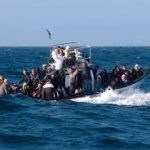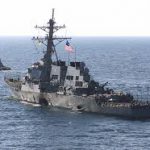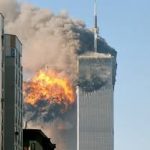Veiled Priorities
Remember the peace dividend – the era of peace, prosperity, and jobs promised by western political leaders after the collapse of the Soviet Union?
One definition of ‘peace dividend’ is ” the money that becomes available in a national government’s budget when the country is at peace, and can afford to reduce its defence spending.”(1) Peace dividend also refers to “an increase in investor confidence that sparks an increase in stock prices after a war ends, or a major threat to national security is eliminated. The money saved from defence spending is usually used toward housing, education and other projects”.(2)
Losing Patience
However, instead of peace, prosperity and jobs, the world seems to be growing increasingly angry, losing patience over lost opportunities. Whether in the United States, Europe, or elsewhere in the western world, the 99 versus one per cent, and the continued winnowing out of the middle class is evidence more of a plutocracy or rich élite pulling the strings of power than democratically-elected governments dedicated to the health and well-being of their citizens.
 The 2011 Occupy Protests in Manhattan, Montreal, Madrid, London, Paris, and other cities across the planet came as no surprise. On the international level, large groups of protesters have long been a part of political and economic summits, the most recent being the G20 Summit in Australia in November 2014. Those in power see the presence of protesters at such summits as an imposition. The official response is predictable: heightened security measures, greater restrictions on movement and tighter surveillance followed by running battles between police and protesters, tear gas, and mass arrests. The scene plays itself out over and over again from one summit to the next. A scaled-down approach aimed at the handful of agitators who do try to foment trouble, could effectively maintain order while still protecting the public’s democratic rights. However, the use of police agents-provocateurs at the G20 summit in Toronto in June 2010 shows authorities’ disregard of constitutional rights. A study of the G20 protests revealed “the largest mass arrest in Canadian history. Hundreds of peaceful protesters were taken to detention despite the fact they were lawfully protesting in the ‘free speech zone’ set up by police on the grounds of Ontario’s Provincial Legislator, Queen’s Park.”(3)
The 2011 Occupy Protests in Manhattan, Montreal, Madrid, London, Paris, and other cities across the planet came as no surprise. On the international level, large groups of protesters have long been a part of political and economic summits, the most recent being the G20 Summit in Australia in November 2014. Those in power see the presence of protesters at such summits as an imposition. The official response is predictable: heightened security measures, greater restrictions on movement and tighter surveillance followed by running battles between police and protesters, tear gas, and mass arrests. The scene plays itself out over and over again from one summit to the next. A scaled-down approach aimed at the handful of agitators who do try to foment trouble, could effectively maintain order while still protecting the public’s democratic rights. However, the use of police agents-provocateurs at the G20 summit in Toronto in June 2010 shows authorities’ disregard of constitutional rights. A study of the G20 protests revealed “the largest mass arrest in Canadian history. Hundreds of peaceful protesters were taken to detention despite the fact they were lawfully protesting in the ‘free speech zone’ set up by police on the grounds of Ontario’s Provincial Legislator, Queen’s Park.”(3)
Despite extensive media coverage and academic studies showing how such tactics galvanise rather than deter people from expressing themselves, authorities seem wilfully blind in not recognising how they contribute to violence. The presence of protesters at such events is a missed opportunity. “Mass protest should not be viewed as an exercise in democracy, but rather, as a signal that the political process, whether democratic or autocratic, is failing to adequately recognise the levels of discontent and dissent and properly address an important and valued issue in public policy.”(4)
A Safer World
However, the arrests of legitimate protesters pale when considering the number of people who have died in a proliferation of violent conflicts and terrorist attacks since the collapse of the Soviet Union in late December 1991. The number of deaths is in the millions and climbing even though the world is a safer place than it’s ever been. It’s a simple question of numbers. “If we look at battle deaths in the last century, the spurts in the Cold War, associated with the Korean, Indochina and Soviet-Afghan wars, were dwarfed by the huge spikes of slaughter associated with the world wars.”(5) President Obama says it more succinctly. “If you had to choose any moment to be born in human history, you’d choose this time. The world is less violent than it has ever been…”(6)
Although such statements may calm mass audiences in the short term, they do little to lower the daily accumulation of dead, resolve the sharply unequal distribution of wealth, or invest in more jobs. The peace dividend that was meant to rebuild western society, help bring real democracy to the former Soviet Union and its allies, and establish a better world overall, began to be put to other uses.
The shift from investing in housing, jobs, and structures of democracy to greater emphasis on security and intelligence gathering began after several terrorist attacks against the United States. These include simultaneous explosions at US embassies in Nairobi, Kenya, and Dar es Salaam, Tanzania in August 1998; the attack against the USS Cole while in the Yemeni port of Aden in October 2000; and the deliberate crashing of two airliners into New York’s World Trade Centre in September 2001. All three attacks can be traced back to Osama bin Laden who first opposed the soviet occupation of Afghanistan from 1979 to 1989 as a war against the presence of infidels in a Muslim land.
- USS Cole
- World Trade Centre
- Osama bin Laden
“When Saddam Hussein invaded Kuwait in August 1990, bin Laden offered to lead an army to defend Saudi Arabia. The Saudis rejected this offer and instead allowed the United States to establish bases in their kingdom, leading to bin Laden’s active opposition to the United States.”(7) The embassy attacks marked the 8th anniversary of US forces entering and setting up camps in Saudi Arabia as part of Operation Desert Storm.
Ironically, the shift in spending priorities for the peace dividend followed the same reflex for enhanced security used to deflect the exercise of democratic rights at international summits. “Tighter security precautions put in place in the wake of the terrorist attacks of September 11, 2001, have been estimated to cost the world about $75 billion. The IMF’s World Economic Outlook, December 2001: The Global Economy After September 11 indicated that the long-term cost could be as high as 0.75 per cent of world GDP.”(8) The figure is considerably higher in the United States where spending for homeland security has doubled since 2001. “Total federal spending on homeland security since 9/11 [has] reached nearly $650-billion.”(9) The distinction between security and military spending is subtle. Even though world military expenditures for 2013 were down for a second consecutive year, it still totals $1747 billion, approximately 2.4 per cent of world GDP. (10)
After the 2001 carnage in New York, the US reaction to declare war on terror, notably against the Taliban in Afghanistan, became a legitimate objective of national defence. However, deliberately false premises led to higher military expenditures in the US and coalition countries for the 2003 military action against Iraq. Despite repeated warnings of arms of mass destruction from the Bush/Cheney administration, none were ever found. US forces withdrew from Iraq by the end of December 2011, and from Afghanistan at the end of December 2014. A small US transition force remains in both countries.
Mujahideen – Taliban – Islamic State
US and allied support to the anti-Soviet forces of the Mujahideen in Afghanistan rebounded against the West, becoming an expensive 14-year operation the effects of which reverberate to this day. Western concern over Islamic Jihad has taken on new urgency as Islamic State, a technically-sophisticated terrorist organisation that even al-Qaeda deems too hard-line, embarks on a co-ordinated effort to turn the Middle East into an Islamic Caliphate. In the intervening years hard-line Islamists, as opposed to peace-loving Muslims, have also caused death and destruction across large areas of Africa from Somalia in the east, Mali in the north and Nigeria in the west. This has also created considerable unrest in surrounding states due to cross-border terrorist raids.
Dangerous waters
 Fighting on so many fronts has spawned an unprecedented number of refugees, and a growing industry in human trafficking. Thousands of migrants put to sea in unseaworthy boats that sink, or are abandoned by their crews. More than four thousand Africans seeking asylum in Europe drowned in the Mediterranean in the first nine months of 2014.
Fighting on so many fronts has spawned an unprecedented number of refugees, and a growing industry in human trafficking. Thousands of migrants put to sea in unseaworthy boats that sink, or are abandoned by their crews. More than four thousand Africans seeking asylum in Europe drowned in the Mediterranean in the first nine months of 2014.
In September 2013, the International Organisation for Migration said that as many as 40,000 migrants worldwide had died since the year 2000. The IOM reports that more than 3000 migrants died while making their way across the Sahara desert. 22,000 migrants died while trying to reach Europe where they hoped to set up a new life, leaving behind countries racked by war or devoid of economic opportunity. William Lacy Swing, the Director General of the IOM, says “The paradox is that at a time when one in seven people around the world are migrants in one form or another, we are seeing an extraordinarily harsh response to migration in the developed world. Limited opportunities for safe and regular migration drive would-be migrants into the hands of smugglers, feeding an unscrupulous trade that threatens the lives of desperate people.”(11) Still, as so many studies indicate, the world is safer than it used to be. Why then do so many have such a growing sense of insecurity?
William Lacy Swing, the Director General of the IOM, says “The paradox is that at a time when one in seven people around the world are migrants in one form or another, we are seeing an extraordinarily harsh response to migration in the developed world. Limited opportunities for safe and regular migration drive would-be migrants into the hands of smugglers, feeding an unscrupulous trade that threatens the lives of desperate people.”(11) Still, as so many studies indicate, the world is safer than it used to be. Why then do so many have such a growing sense of insecurity?
In the bi-polar world of the United States and former Soviet Union, protection was assumed through the doctrine of Mutually Assured Destruction. Declassified documents, however, show the two sides came close to nuclear war. “Cabinet memos and briefing papers released under the Freedom of Information Act reveal that a major war games exercise, Operation Able Archer, conducted in November 1983 by the US and its NATO allies was so realistic it made the Russians believe that a nuclear strike on its territory was a real possibility.”(12) The Reagan and Thatcher administrations in the United States and Britain respectively, failed to take the lessons of history into account. They were shaken when Moscow reacted to Operation Able Archer by mobilising nuclear submarines, ships and aircraft. For Moscow, such a large-scale western exercise instantly unearthed memories of how the Soviet Union lost 25-million citizens in the Second World War after Hitler tricked Stalin by invading under the guise of military exercise Operation Barbarossa. The restrictive classification of such information delayed western and soviet populations alike from seeing what was really happening.
The Reagan and Thatcher administrations in the United States and Britain respectively, failed to take the lessons of history into account. They were shaken when Moscow reacted to Operation Able Archer by mobilising nuclear submarines, ships and aircraft. For Moscow, such a large-scale western exercise instantly unearthed memories of how the Soviet Union lost 25-million citizens in the Second World War after Hitler tricked Stalin by invading under the guise of military exercise Operation Barbarossa. The restrictive classification of such information delayed western and soviet populations alike from seeing what was really happening.
 In today’s digital age, the world instantly sees terrorist attacks whether at a school in Beslan, in southern Russia (2004); a train station in Madrid (2005); subway and bus attacks in London (2005) to the more recent attacks against the satirical newspaper Charlie Hebdo in Paris (January 2015); the Canadian parliament in Ottawa (October 2014); or the attack against unarmed students and teachers in Peshawar, Pakistan (December 2014). Widespread terrorist attacks leave few indifferent, creating a sense that the world is unravelling.
In today’s digital age, the world instantly sees terrorist attacks whether at a school in Beslan, in southern Russia (2004); a train station in Madrid (2005); subway and bus attacks in London (2005) to the more recent attacks against the satirical newspaper Charlie Hebdo in Paris (January 2015); the Canadian parliament in Ottawa (October 2014); or the attack against unarmed students and teachers in Peshawar, Pakistan (December 2014). Widespread terrorist attacks leave few indifferent, creating a sense that the world is unravelling.
Finding Common Ground
Hostage negotiators establish common ground with hostage takers. They realise that conflict goes beyond mere differences of opinion to hostile action when one perceives a threat where none exists. The perception of a coming nuclear attack is a prime example. As the growing number of migrant dead, and victims of terrorist attacks show, misunderstanding can be lethal. Conflict, like cancer, continues to grow if not properly treated. A tried and true approach in conflict resolution is to treat opponents as human beings rather than demons. In the long run, it restores calm and greater understanding.
Strong language triggers strong emotions. Dialling down inflammatory rhetoric promotes a freer exchange of ideas that short-circuits misunderstanding. Looking at disintegration as a disease, hopelessness at not being heard is but one of its symptoms. Growing insularity against immigrants, refugees and those of other beliefs is another. Yet another symptom is vengeance, wanting to strike back at terrorists. Like the contagion of a lethal virus, this triggers the reflex of leaders who, in the emotionally-charged period after an attack, call for greater security measures, fuelling a destructive process leading to more such attacks.
Governments need to do better. Why, when technology already gives governments unprecedented information-gathering and surveillance power, do they continue to call for stronger security measures? What’s the real motive? Governments, protesters and terrorists alike have forgotten that fighting against war merely creates more war. It’s time to think more in terms of dialogue, and standing up for peace.
Bibliography
(1) Peace Dividend. (n.d.). Retrieved January 7, 2015, from www.investopedia.com/terms/p/peace-dividend.asp
(2) Ibid
(3) Hussey, I., & LeClerc, P. (2011). “The Big Smoke” Screen: Toronto’s G20 Protests, Police Brutality, and the Unaccountability of Public Officials. Socialist Studies / Études Socialistes, 7(1 / 2). Retrieved January 10, 2015, fromhttp://www.socialiststudies.com/index.php/sss/article/view/186/162
(4) Marshall, M., Cole B.R. (2014, January 1). Global Report 2014: Conflict, Governance, and State Fragility. Retrieved January 6, 2015, from www.systemicpeace.org/vlibrary/GlobalReport2014.pdf
(5) Lind, M. (2013, April 23). The world is actually safer than ever. Retrieved January 5, 2015, from http://www.salon.com/
(6) Obama, B. (2014, June 13). Obama amid terrorist storm Iraq world less violent. Obama amid Terrorist Storm Iraq World Less Violent. Retrieved January 5, 2015, from www.washingtontimes.com/news/2014/jun/13/obama-amid-terrorist-storm-world-less-violent
(7) Munson, H. (2004, January 6). Lifting the Veil: Understanding the Roots of Islamic Militancy. Retrieved January 10, 2015, from http://hir.harvard.edu/archives/1184
(8) Gupta, Clements, Bhattacharya, Chakravarti. (2002). The Elusive Peace Dividend: How armed conflict and terrorism undermine economic performance. Finance & Development, 39(4). Retrieved January 6, 2015, from www.imf.org/external/pubs/ft/fandd/2002/12/gupta.htm
(9) Homeland Security Budget. (2011, January 1). Watson Institute for International Studies, Brown University. Retrieved January 10, 2015, from http://costsofwar.org/article/homeland-security-budget
(10) Military Expenditure. (2014, January 1). Stockholm International Peace Research Institute. Retrieved January 10, 2015, from www.sipri.org/research/armaments/milex
(11) Spark-Smith, L. (2014, September 30). 40,000 migrant deaths worldwide since 2000. Retrieved January 6, 2015, from www.cnn.com
(12) Doward, J. (2013, November 2). How a NATO war game took the world to the brink of nuclear disaster. Retrieved January 12, 2015, from www.theguardian.com
Tags: Africa, Charlie Hebdo, Common Ground, Conflict, Defence spending, Dialogue, Islamic State, Je suis Charlie, Lampedusa, Mali, NATO, Nigeria, Osama bin Laden, Peace dividend, Protest, Reagan, Security, Somalia, Taliban, Terrorist attack, Thatcher, War Games



